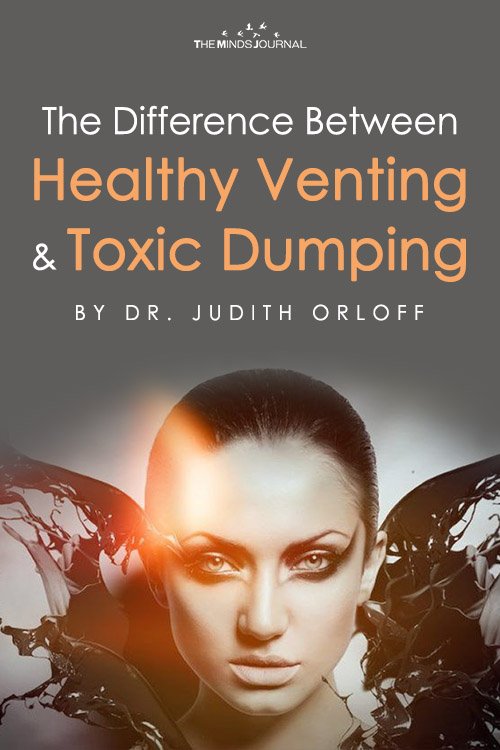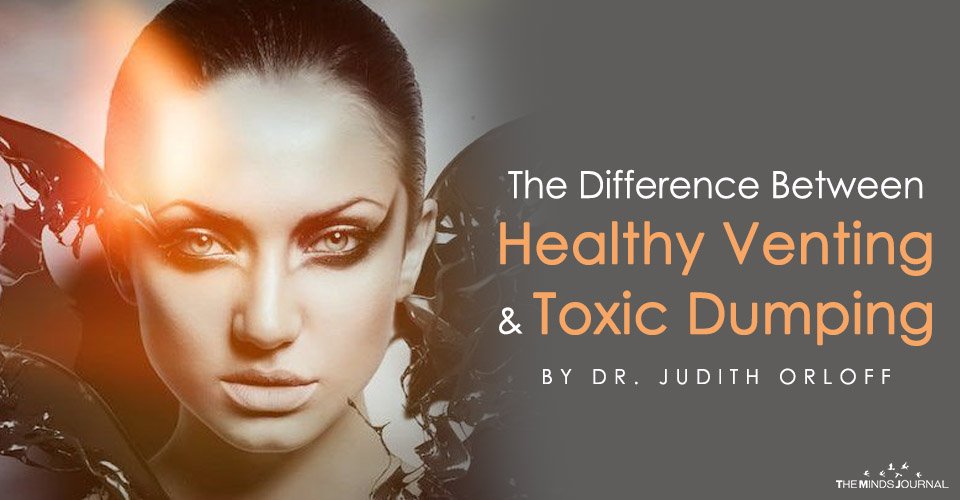We can all get upset at times but there are healthy ways to express frustration and anger.
It is important, especially for empaths and sensitive people to be aware of the difference between venting and dumping as the later can beat down one’s positivity and self-worth.
As a psychiatrist and empath myself I have a hard time tolerating loud noises.
So, for the sake of preservation, I have a “no yelling” rule in my house.
For sensitive people, a healthier way to express anger is through venting, whereas dumping is toxic and can traumatize and overwhelm us.
For instance, if your spouse wants to vent, ask him or her to make a formal request by saying,
“I have a request. I need to vent about an issue.
Is that okay to do now?”
This gives you some warning so you’re not hijacked.
Then, it’s your choice to discuss the issue right away or later when you have adequate time and feel more centered.
Here are some guidelines from my book, “The Empath’s Survival Guide” to follow when you or someone else is communicating anger or frustration.
Communication is vital when it comes to expressing anger or other intense emotions.
Knowing the difference between venting and dumping is a positive start to having clarity in your relationships.
If someone starts dumping on you, it’s fine to excuse yourself and tell them “I can talk to you when you are calmer.”
Learning to protect yourself in this way, particularly if you are a sensitive person, is an important form of self-care.
Read This Isn’t the Time to Accept Toxic Behavior From Anyone
(Adapted from “The Empath’s Survival Guide” by Judith Orloff MD)









Leave a Reply
You must be logged in to post a comment.